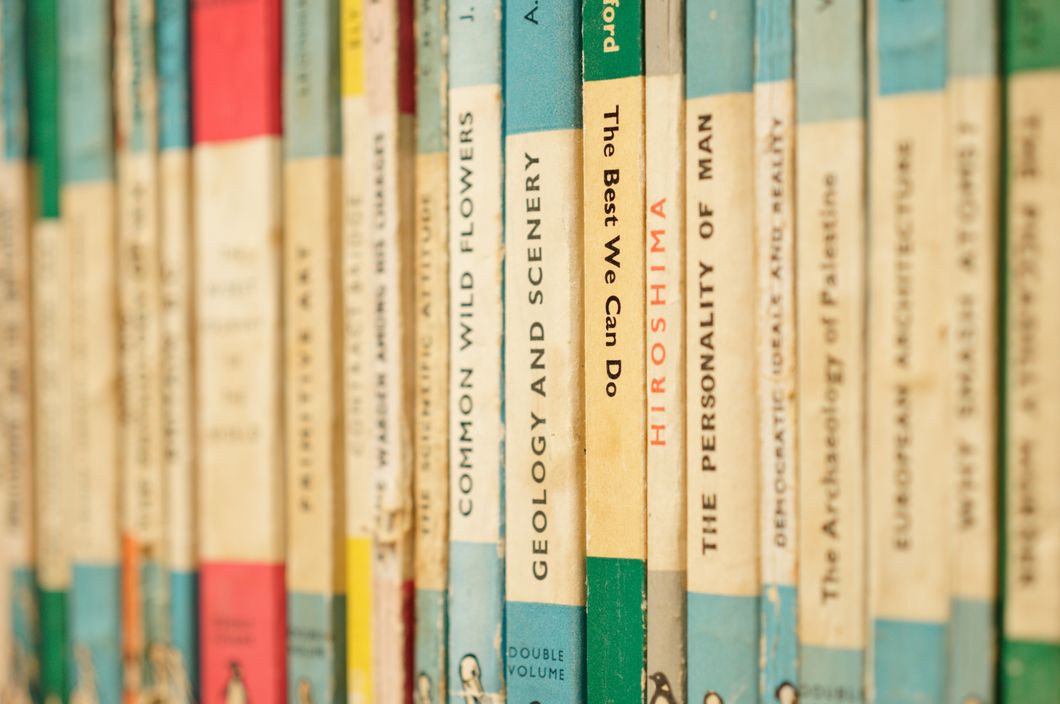Banned Books Week is coming up in a few short weeks, and before it arrives, I feel like it's my responsibility to give my two cents. Because while all the books on this list are controversial, "vulgar," violent, and potentially "obscene," they also represent the pillars of an ideal society. That statement seems confusing and contradictory, I know. But the truth of the matter is that banned books show us who we are as individuals, who we are as a community, who we could be, who we should be, who we were, who we can never become again, who our friends and neighbors are and everything in between.
As a literature major, it's no doubt that any reader of my articles will see me profess again and again the importance of works of fiction because they teach us much more and expose so much about us that we never knew or perhaps never wanted to face.
I used to think that self-censorship was a viable option, a compromise in lieu of mass censorship. But what I've come to realize is that in the tumultuous times we live in, it is no longer acceptable to remain passive on arguments about race, politics, class and gender. And these very books are those that can give us the most in-depth look into the experiences of other human beings so we can better prepare ourselves to face the relevant issues of today. Books like "Catcher in the Rye," "To Kill A Mockingbird," "I Know Why The Caged Bird Sings," and "The Color Purple" are iconic for a reason and shouldn't be hidden from children or ourselves as adults.
It is nearly a crime to shelter yourself from the world out there just because the people living in that world may not think or say what we want to hear.
Books like "Beloved" by Toni Morrison give a glimpse into a life that many people will never understand yet fosters empathy and understanding from many that are quick to judge.
Or "1984" by George Orwell prophesied the consequences of too much technology in our lives, many of which seem more and more probable as we explore face IDs, touch ID, chips and more.
Or Zora Neale Hurston's "Their Eyes Were Watching God," a book that challenges our assumptions in the "marianismo" perspective surrounding women and sexuality.
Maybe "Cat's Cradle" by Kurt Vonnegut, one of my favorite books, is something that we need to read to challenge our preconceived notions of religion and philosophy.
So parents and teachers especially, in a few weeks, when Banned Books Week of 2018 debuts, make a special effort to pick a book or two from the list and confront it head-on with your children. Don't shy away from the tough conversations or questions: Your nation will thank you for it one day when those very kids are old enough to realize for themselves that so long as we keep an open mind and choose to fight for what we believe in, nothing can hold us back. And believe it or not, all that starts with the very books your parents may have tried to hide from you decades before.
Let's not be content to make the same mistakes that our parents and grandparents did. Let's not elect to sweep uncomfortable discussions under the rug. Instead, let's choose transparency, honesty and understanding: three of the traits that these magnificent books are capable of teaching us.



 StableDiffusion
StableDiffusion
 StableDiffusion
StableDiffusion
 student thinking i shouldnt have procrastinated all semester
StableDiffusion
student thinking i shouldnt have procrastinated all semester
StableDiffusion
 Photo by
Photo by  Photo by
Photo by  Photo by
Photo by  StableDiffusion
StableDiffusion
 StableDiffusion
StableDiffusion
 Photo by
Photo by  Photo by
Photo by 


 Lumiere figure at the Disney Store at the Ala Moana Shoppi… | Flickr
Lumiere figure at the Disney Store at the Ala Moana Shoppi… | Flickr








 StableDiffusion
StableDiffusion StableDiffusion
StableDiffusion 10. Extra BlanketsJuwenin Home 100% Cotton Knitted Throw Blanket
10. Extra BlanketsJuwenin Home 100% Cotton Knitted Throw Blanket StableDiffusion
StableDiffusion StableDiffusion
StableDiffusion File:Kishlaru familie.jpg - Wikimedia Commons
File:Kishlaru familie.jpg - Wikimedia Commons Photo by Hanna Balan on Unsplash
Photo by Hanna Balan on Unsplash StableDiffusion
StableDiffusion black blue and yellow round illustrationPhoto by
black blue and yellow round illustrationPhoto by 













